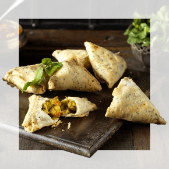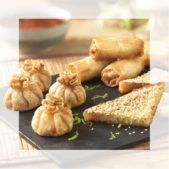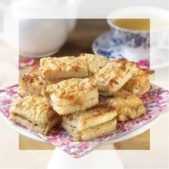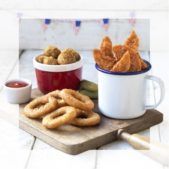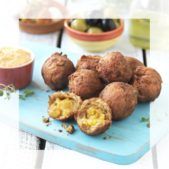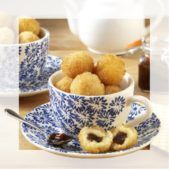You probably know that being ‘in a pickle’ means you are in some sort of trouble but do you know why we use this term?
It’s an allusion to being as disoriented and mixed up as the vegetables that make up pickles.
Brits have always had a bit of a soft spot for the savoury side dish, probably due to their links with India where the first chutneys, and their close relatives pickle and relish, are thought to have been made some 2,500 years ago.
But 2022 marks the centenary of a landmark moment which would gain the British pickle a seat at the table of world food history.
It was in Staffordshire in the early part of the 20th century that Mrs Caroline Graham, aided by her daughters Evelyn and Ermentrude, applied her knowledge of biological research to food.
Gherkins from India, dates from Iran and Pakistan, onions from Holland, lemon juice from Sicily and rutabaga seeds from Canada all went into the mix until they perfected what became regarded locally as the perfect pickle.
The heavenly concoction was named after the Graham’s village and so Branston Pickle was born.
It may have stayed a local secret were it not for a series of accidents of fate, beginning with possibly the least productive armament factory of the first world war.
In 1917 the Government decided to build a machine gun factory at Branston because at the time the village was out of range of all known German aircraft. In fact, not a single machine gun was ever produced. By the time the factory was built, the war was over. The site was put up for sale and bought by the company Crosse and Blackwell who promised to turn it into the largest and best equipped food preserving plant in the British Empire.
They used Mrs Graham’s local recipe and production began in 1922. More than 600 people, the majority women, were employed and everyday tonnes of ingredients arrived from Covent Garden and thousands of jars were shipped out across the globe. The small village must have felt like Piccalilli Circus but for Branston the boom would last just a little over two years.
In 1925 the factory closed. Branston Pickle continued to be made but production was moved to London and for decades afterwards the product was boycotted in the village whose name it bore.
Pickle would continue to tickle the British palate however and was recently voted one of Britain’s most iconic foods. Now, thanks to further innovation by the chefs at SK foods, our own unique recipe goes into the cheese and pickle bite which can be enjoyed as part of our traditional food range. So sit back, tuck in and relish the moment.
